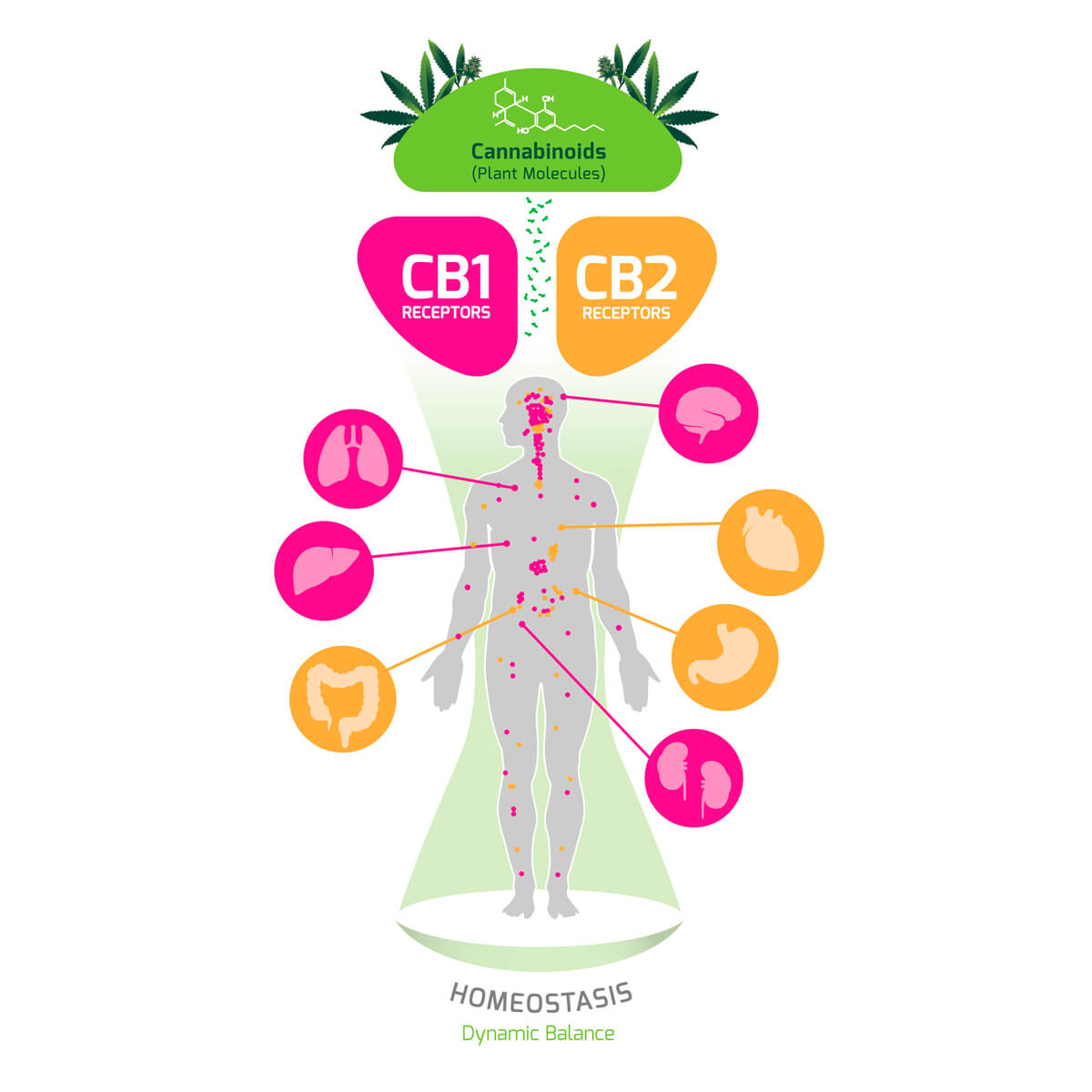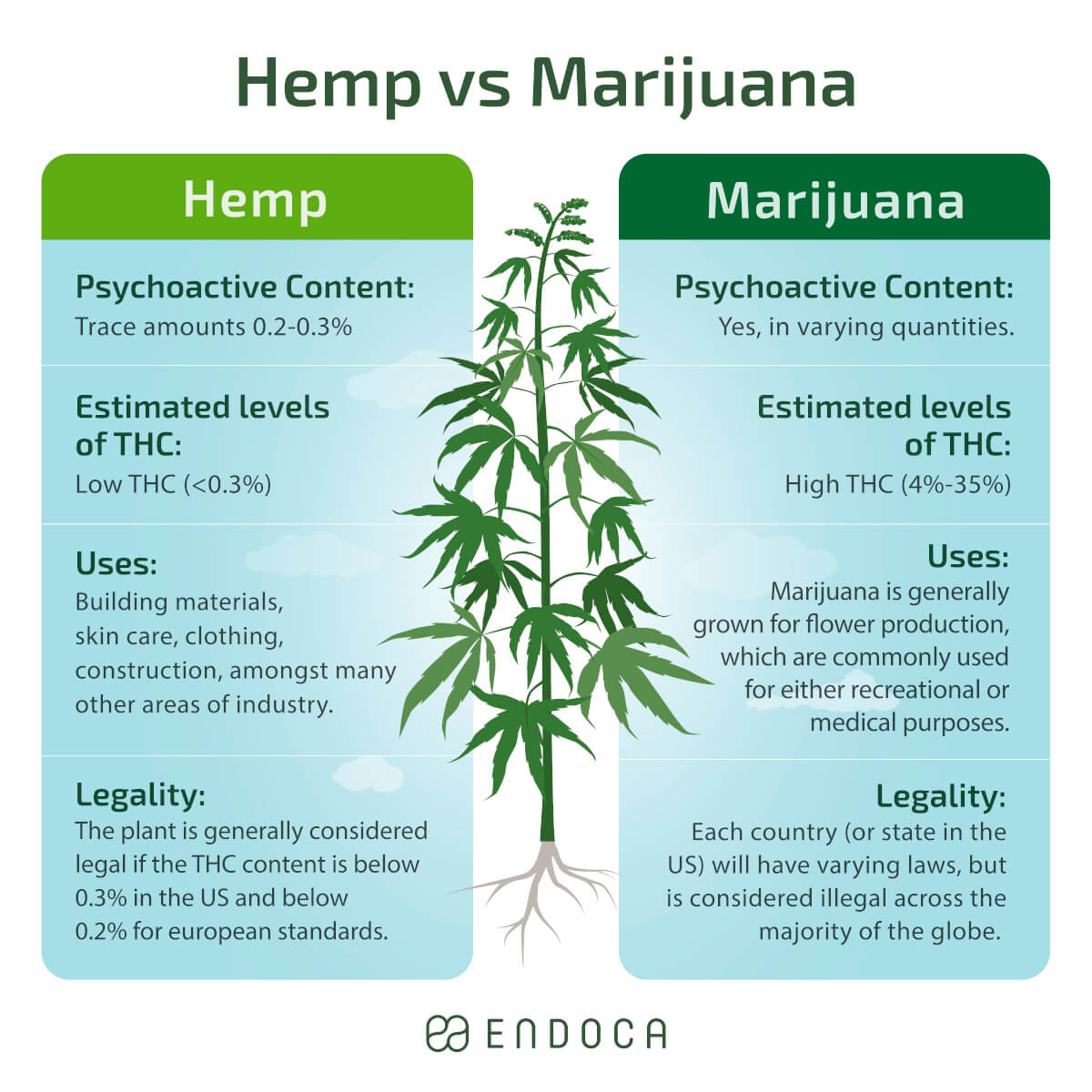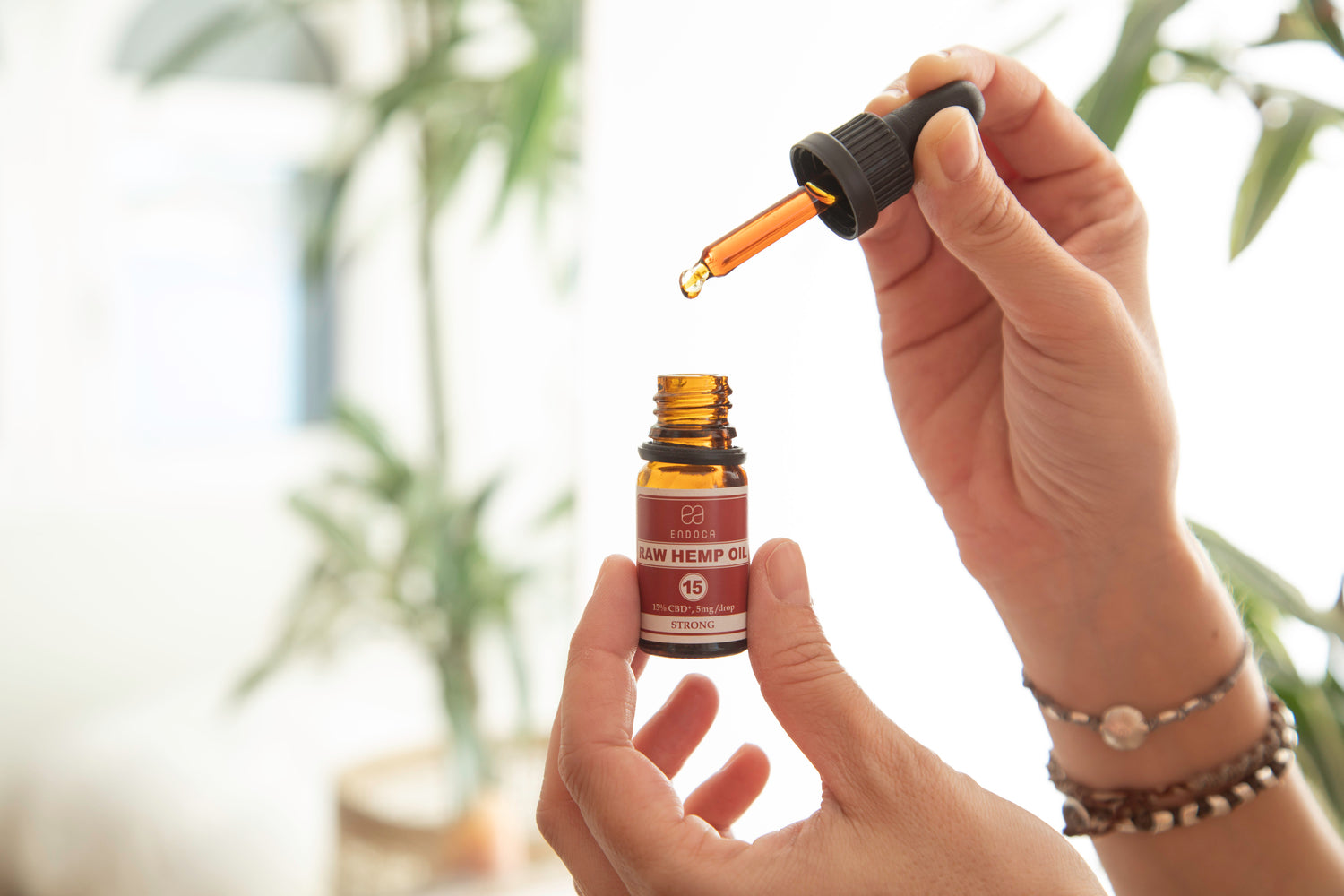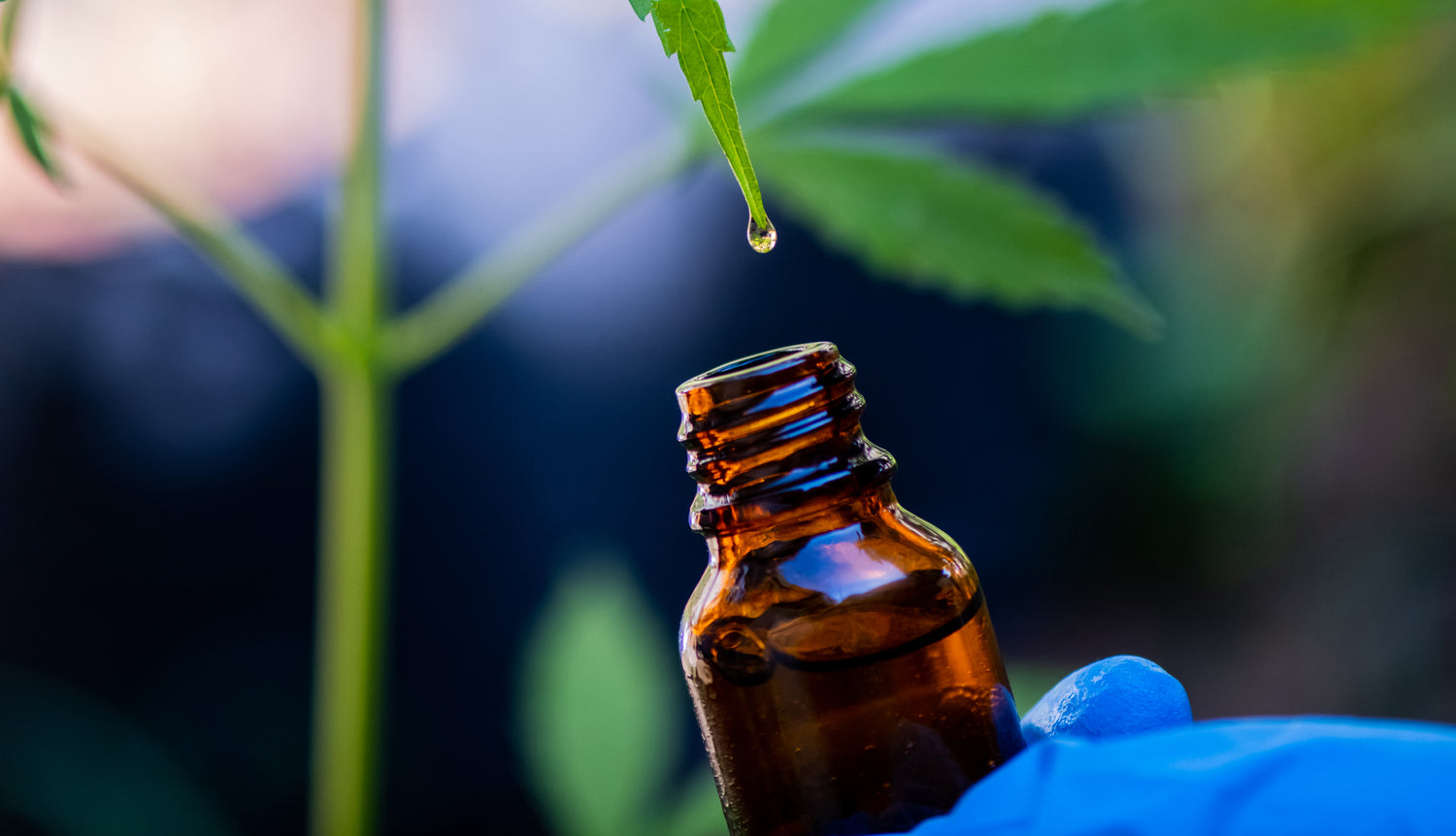What is CBD?
What's CBD? At Endoca, we believe that CBD is the most amazing natural compound found in the cannabis plant — we’re dedicated to producing only the finest and purest quality CBD extracts for our customers.
In our guide, you’ll discover what the acronym ‘CBD’ really stands for? And more about the fascinating science behind the compound. We value education as part of our mission, that's why we’ve put together an essential ‘what is CBD’ guide to help you learn more about its potential wellness benefits.
What Is CBD Oil?
What is Cannabidiol?
CBD stands for Cannabidiol – a plant compound found abundantly in hemp plants.
For generations, hemp has been used as a botanical powerhouse in helping humans with their health. In recent years, there has been a resurgence in the use of hemp due to its natural therapeutic properties.
Cannabis Sativa is the botanical plant name for hemp, which is a member of the Cannabaceae plant family. Cannabidiol is just one of over 80 natural plant compounds found in this species of cannabis.
Cannabidiol is the main active ingredient in popular CBD products, where powerful natural extracts are extracted from hemp and are used to create oils, capsules, edibles, infused skincare, and much more.
When CBD was identified in the 1940s, scientists assumed it had little or no effect on the body. The main focus back then was researching THC and its pharmacology. However, fast forward to the 1990s and a research team led by Professor Raphael Mechoulam (commonly acknowledged as the grandfather of cannabis research) discovered what has come to be known as the endocannabinoid system (ECS) – and this changed everything.
It is thought by scientists that the compound cannabidiol has the potential to help maintain balance in the body, by interacting with your internal endocannabinoid system. This system helps control bodily functions such as appetite, mood, immune response, pain, and sleep patterns.
What is CBD used for?
So, what is CBD good for? Its vast benefits are characterized by its ability to create balance, through promoting the production of endocannabinoids. Research conducted by scientists suggests that Cannabidiol’s ability to create balance can help support daily wellness and a general sense of wellbeing.
Want to learn more about the effects of cannabidiol? Explore more of the CBD benefits.

What does CBD do?
Cannabidiol works by interacting with the body through a complex network of cannabinoid receptors, called the endocannabinoid system (ECS). This vast internal system controls essential daily functions such as appetite, mood, and sleep patterns. When these receptors are stimulated they help the body create its own chemicals called endocannabinoids.
But what are compounds? Compounds are simply chemicals, that are found naturally in almost all living creatures. Endocannabinoids are compounds created by the body and phytocannabinoids are compounds created by plants.

Is CBD Oil Made from Marijuana?
When it comes to CBD oil many may wonder if hemp and marijuana are the same? After all, Cannabidiol does come from cannabis. The answer to this question is technically, Yes. As they both come from the Cannabis Sativa species of cannabis. However, their properties are considerably different.
-
Hemp
The term 'Hemp' is generally used to describe non-psychoactive forms of cannabis cultivated for agricultural and industrial use. Hemp is a name used to describe a classification of Cannabis Sativa, which has long stems, slim leaves, and only trace amounts of the psychoactive compound THC, 0.2% or less. This form of cannabis is known for its rich Cannabidiol content (which is non-psychoactive) and its low Tetrahydrocannabinol (THC) content.
-
Marijuana
‘Marijuana’ on the other hand is a term used to describe Cannabis Sativa that contains high levels of THC. Tetrahydrocannabinol, also known as THC, is the cannabis compound that IS psychoactive and is responsible for creating the ‘high’ feeling most commonly associated with cannabis. The Marijuana classification of Cannabis Sativa contains high amounts of THC that can reach levels of up to 40%. Cannabis that contains these higher levels is mainly grown for recreational and medical use.
Where Does Hemp Oil Come From?
Here at Endoca, our Hemp oil is made from whole plant hemp extracts, which naturally have a high Cannabidiol content. Hemp is grown and cultivated in optimal growing conditions, before being sent off to our GMP certified labs for extraction.
There are many ways to extract Cannabidiol from hemp, but not all of them are safe.
The State-of-the-art CO 2 extraction method is the cleanest and safest way to produce extracts, as it only uses clean air. Endoca hemp oil is a blend of the finest hemp extracts and high-quality hemp seed oil. Each oil comes in a variety of concentrations.
Want to discover your perfect hemp oil? Explore the Endoca shop for our full range of CBD products.

What is full spectrum hemp oil?
Hemp is not only a rich source of Cannabidiol, it also contains other phytocannabinoids, that add to the benefits of using hemp oil products. To get the best out of hemp, using full-spectrum extracts that maintain the integrity of the whole plant, is essential to unlocking all its benefits. There are many more compounds than just Cannabidiol, that also have beneficial properties, including CBN, CBG, and CBDa, just name a few.
Here at Endoca, we believe that hemp oils containing more than one compound are more effective. Having a wealth of cannabinoids and other cofactors such as terpenes, flavonoids, and waxes, creates a well rounded effect called ‘the entourage effect’ where each compound and additional component works in synergy with each other.
What is the Difference Between Hemp oil and CBD Oil?
The terms hemp oil and CBD oil can often be used interchangeably, most may not even know that there can be, in fact, a difference between the two.
The main difference between hemp oil and CBD oil is found in where they are extracted. While hemp oil is always extracted from the hemp plant. Other oils containing Cannabidiol, on the other hand, can be extracted from hemp and marijuana plants. A handy reminder to tell the difference between the two is that hemp oil is CBD oil, whereas CBD oil is not always hemp oil.

Hemp Oil
Hemp oil is a natural botanical extract of the hemp plant, which contains a high amount of CBD and trace amounts of THC (less than 0.2%). Hemp oil is extracted from the stems, stalks, and flowers of the hemp plant, to create oils or tinctures.

CBD Oil
Also derived from hemp, but is a term often used to describe any oil that contains Cannabidiol. Sometimes CBD oils can be derived from other strains of cannabis that contain more THC. The compound, Cannabidiol, is the same in all CBD oils, whether it's derived from hemp or other forms of cannabis.
But what about Hemp Seed Oil
Hemp seed oil is extracted from hemp seeds in order to access properties, such as essential vitamins, minerals, flavonoids, and fatty acids. Hemp seed oil is extracted from hemp seeds anddoesn’t contain Cannabidiol. Typically hemp seed oil is used for cooking, cosmetics and as a carrier oil. Its beneficial properties include
omegas 3, 6 & 9 and amino acids.
Will CBD make you High?
Cannabidiol is 100% non-psychoactive, meaning it doesn’t have any mind-altering effects, like THC. The side effects often associated with the high feeling, include mental slowness, drowsiness, or haziness.
Choosing CBD products that are derived from hemp will ensure your products have a lower THC content of less than 0.2%. Our high-quality hemp oils show batch reports to our 3rd party test results, so you can check exactly how much THC is in your products.
What’s the difference between decarb and raw hemp oil?
Decarb, also known as decarboxylation is a term used to describe the process of activating chemical changes in cannabis compounds. In simple terms, this means applying heat or drying methods to raw hemp extracts.
Decarbing (heating) hemp at lower temperatures, converts many of the cannabinoid acids into other cannabinoids – for example through a gentle heating process, CBDa turns into CBD.
This process makes compounds like Cannabidiol more accessible to the body, the heat process of decarboxylation may also damage the trace compounds found in the whole plant, if not conducted correctly.
Heated/Decarb hemp oil simply means that raw hemp extracts have been heated (Decarboxylated) in order for Cannabidiol to be the most dominant cannabinoid in the hemp extract.
What is Raw CBD Oil?
Raw CBD oil indicates that the hemp extracts used to make the oil haven’t been through the curing and heat process. This means the cannabinoid acids, such as CBDa, trace compounds, and terpenes are still intact.
Methods of extraction such as Supercritical CO2, extract an entourage of compounds and helps maintain the integrity of the raw extract taken from the plant. When the raw oil is filtered but not decarbed, you’re left with cannabinoid acids (CBDa) still intact.
About CBDa (Cannabidiolic Acid)
The most common naturally-occurring forms of CBD and THC are their acid forms: CBDa and THCa. Raw THCa is not psychoactive. It must be heated to form THC in order for it to become psychoactive. Here at Endoca, we believe that oils containing cannabidiolic acid are more effective than those that contain Cannabidiol alone.
Still, wondering how Cannabidiol works? Head over to our what are the effects of CBD page to discover more. If you need a helping hand to make an informed decision about Endoca products, you can also send us a message via our chatbot or drop us an email — our support team will be happy to help!

